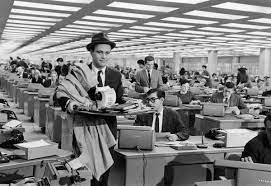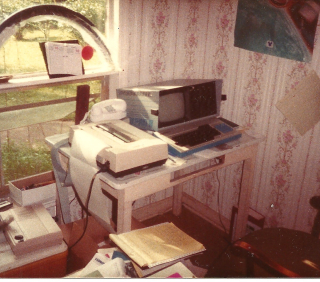
Workers find they like working from home. Employers say they want us back at their desks.
What no one asks is whether we need an office at all.
What does an office do? It acts as a control point, an organizing structure. It’s where data is collected and where decisions are made. But that definition doesn’t require a lot of space or a lot of workers.
In software, an office is a factory. My wife spent 37 years on that floor, before COVID. Since then, she’s been at home. It’s a better location. It’s quieter. Coordination can be done by phone. She doesn’t need the commute, and her employer doesn’t need the expense.

You should meet clients at an office, but why does it have to be your office? Once upon a time client meetings were meant to impress people with how many minions you had for their dirty work. Those days are over.
This change is most pronounced in tech. The “death” of downtown San Francisco is all about this. The city will come back when it realizes the opportunities of mixed-use, converting office space into lofts.
This doesn’t mean no one commutes. Factory workers must be at the job site. Hospitals are now factories. Research universities need people to run the million dollar machines where theories are proven. Retail still exists, and so do vacation spots. But if you’re going to require people to drive to work, and wear uniforms, then you must compensate them.
All this points to fewer “office” jobs, and lower “office” salaries in the future. The threat to working from home is that this work is water hole in a drought. AI will reduce the need for staff, and a lot of disciplines made necessary by offices will be automated.
The nature of work is changing. Technology has been doing this for 200 years. We’re creating more value with fewer people, so those people are becoming more valuable. All this is good news.
Stop trying to convince people otherwise.









